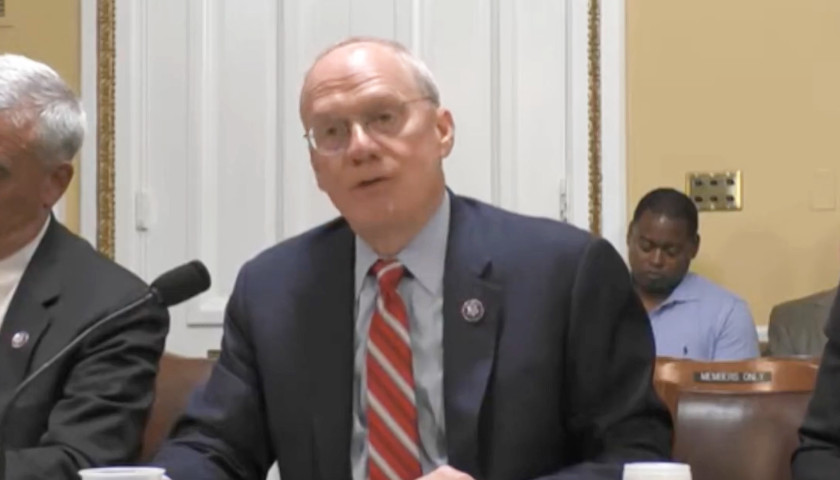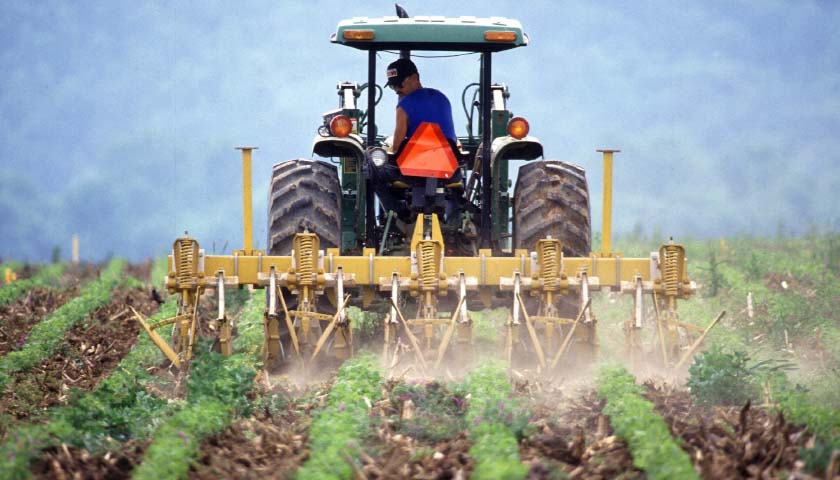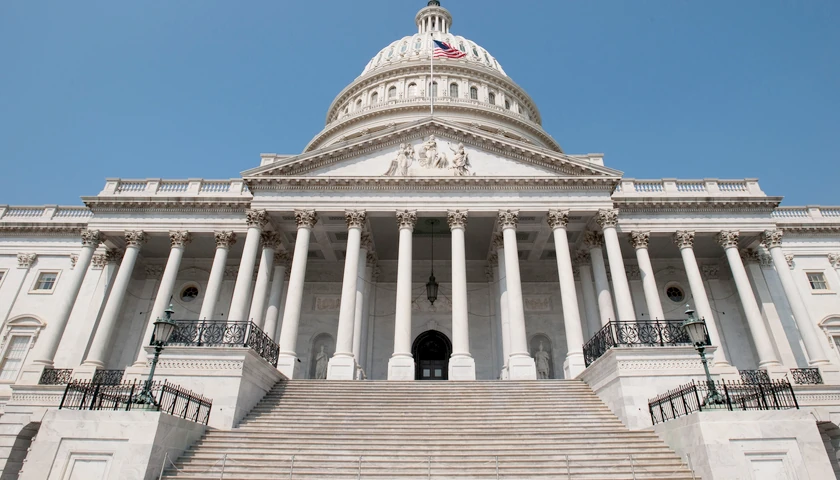A U.S. Congressman from Tennessee testified in front of the House Rules Committee, where he spoke against proposed government regulations regarding Environmental, Social, and Governance (ESG) standards that he says will negatively impact farmers.
“I’d like to begin by urging support for my bipartisan amendment, number 631, co-sponsored by the gentlelady from Michigan, Representative Alyssa Slotkin, to prohibit the Securities and Exchange Commission from enforcing any provision on its rulemaking on enhanced standardization of climate-related disclosures for investors that would directly or indirectly require farmers to submit climate-related information to public companies or the SEC,” said Rep. John Rose (R-TN-06).
The @SECgov's ESG climate change rule would be devastating for our military's budget as it is sure to send food prices skyrocketing.
Watch my testimony before the House Rules Committee in support of my bipartisan amendment to stop the SEC from implementing this ill-advised rule. pic.twitter.com/G90uBzdIdV
— Congressman John Rose (@RepJohnRose) July 12, 2022
ESG practices are an emerging form of social justice standards that, if government mandated, would require companies to add disclosures like climate emissions levels for the purposes of investment. It is largely driven by wealthy “woke” investors, and has been viewed as a way for massive companies to exercise social control over smaller companies.
“Under the rule, public companies will be required to report their greenhouse gas emissions, including, in certain cases, those from their suppliers and customers, otherwise known as Scope 3 Emissions,” Rose said. “The Securities and Exchange Commission estimates the rulemaking, if finalized, will raise the cost to businesses to comply with this disclosure rule from $3.9 billion to $10.2 billion annually.”
Rose said that that figure equates to an additional cost of $420,000 per year for a “publicly listed small company,” and over $500,000 per year for bigger companies. He said that naturally, the companies will then pass on those ESG costs to consumers, which will raise the price of consumer goods.
“Moreover, the companies that will be subject to this rulemaking will be forced to obtain information from their suppliers and customers to comply with that,” Rose said. “As a result, farmers, as a precondition to doing business with public companies, will be forced to collect and submit climate-related information to them. Because of this rulemaking, food prices will increase and have a harsh impact on our military’s food costs.”
Rose noted that the volume of food purchased for the military makes it the largest food-buyer in the United States, which is why the ESG policies would have an outsized impact on the armed forces.
“Two of the largest suppliers of food to the military, Sysco and U.S. Foods, are large public companies that have made climate-related pledges and are subject – or would be subject – to the SEC’s rulemaking,” he said. “As a result, they will be required under this rulemaking to make disclosures about the greenhouse gas emissions in their supply chains.”
Rose says he opposes such measures because, among other things, the SEC was “never meant to be a climate regulator,” and that he led the writing of a bipartisan letter with 118 other members of Congress addressed to the SEC, expressing this concern.
“I believe my bipartisan amendment would be a good first step in refocusing the SEC’s efforts on protecting investors, maintaining fair, orderly, and efficient markets, and facilitating capital formation, and away from imposing unnecessary costs on our farmers.”
U.S. Sen. Bill Hagerty (R-TN) has also expressed similar concern.
He recently wrote a letter to the SEC expressing concern about ESG policies placing an undue burden on America’s farmers.
“While farmers and ranchers have never been subject to SEC oversight, the proposed rule’s Scope 3 greenhouse gas emissions reporting requirement would place a major reporting burden on the many agricultural producers that provide raw products to the value-chain. This substantial reporting requirement would significantly burden small, family-owned farms with a new, complex and unreasonable compliance requirement, resulting in costly additional compliance expenses, reduced access to new business opportunities, and potential consolidation in the agriculture industry,” he said in the letter.
_ _ _
Pete D’Abrosca is a reporter at The Tennessee Star and The Star News Network. Email tips to [email protected].
Photo “John Rose” by John Rose.





